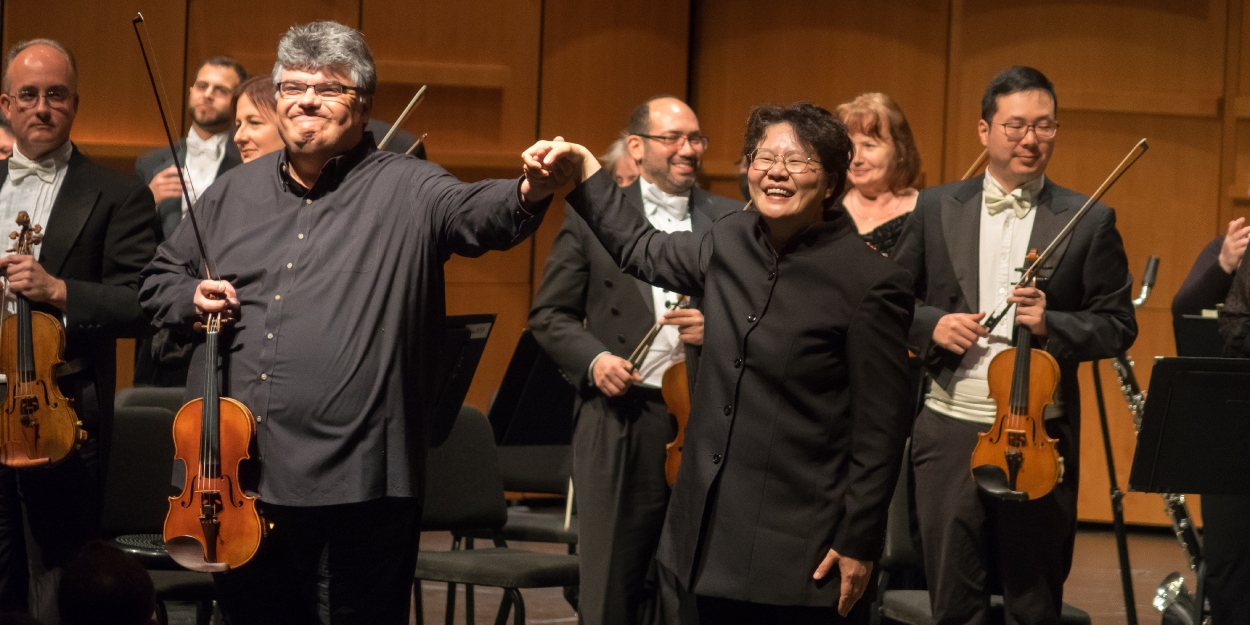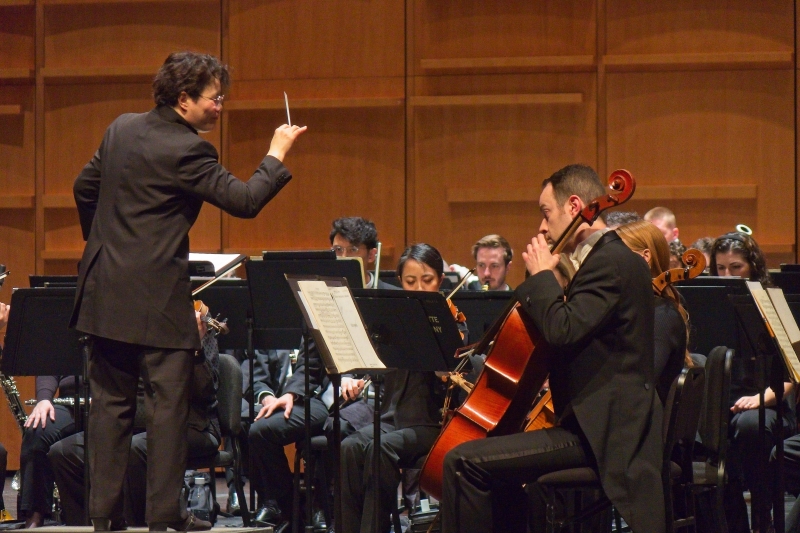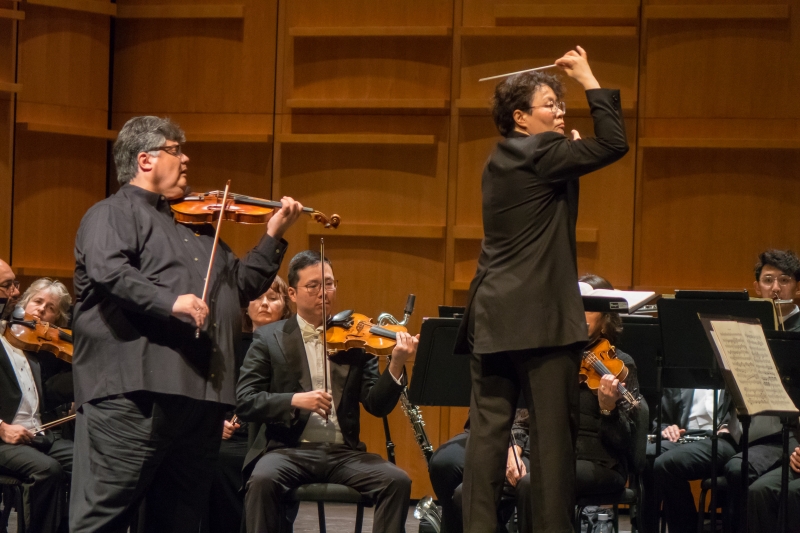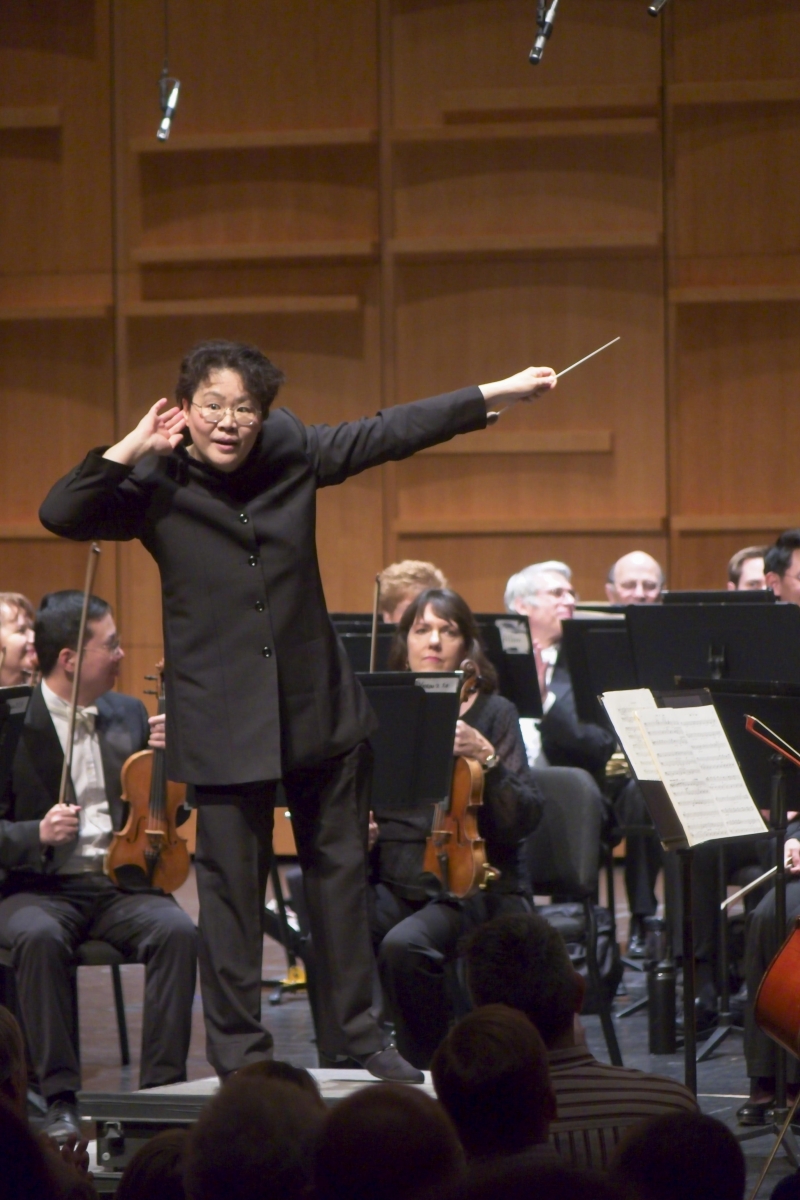Review: BRUCH VIOLIN CONCERTO at Charlotte Symphony
Mei-Ann Chen rocks the Knight in CSO debut.

We've been hearing about numerous identified and unidentified flying objects in recent weeks, emanating from numerous sectors of the globe, crossing over our nation's territorial waters and seeking all sorts of military and meteorological intelligence. Less mysteriously, there have been precise predictions in recent months of astral objects whistling through our solar system, one of them brushing closer to dear Earth than the moon.
But until now, not a word about the meteor that struck the Knight Theater in the heart of Uptown Charlotte. Her name is Mei-Ann Chen, and we can only hope that the guest conductor now in our midst is vying for the vacant music directorship at the Charlotte Symphony. It would be grossly unfair, no doubt, but it wouldn't a bad idea to sign her up before she left town.
Chen's impact on - and appeal to - the Symphony's musicians and subscribers was nothing short of electric.

The orchestra had never performed Fanny Mendelssohn Hensel's Overture in C Major before, yet they attacked the work zestfully, conveying its sharp contrasts and drama with unmistakable fervor. Flutist Amy Orsinger and principal oboist Hollis Ulaky excelled, jointly and separately, in the piece's gentler moments. Although we had heard the CSO play the BRUCH VIOLIN CONCERTO as recently as 2016, Chen ignited the ensemble with fresh fire rather than receding to a subsidiary role behind concertmaster Calin Ovidiu Lupanu.
Instead of deferring to the soloist - or even seeking an agreeable balance between orchestra and violinist - Chen laid the gauntlet down to them both, so that Lupanu and Symphony spurred each other to greater heights vying for supremacy, achieving a higher level of parity through their combat. More adventurous now than I can recall, Lupanu was nearly note-perfect all the way through the treacherous terrain of the Allegro energico finale while his attack, confidence, and feeling were never better. His command was certainly impressive throughout the opening Allegro moderato, with a transition to the slow middle movement that was amorously smooth. Principal flutist Victor Wang helped to make this Adagio extra exquisite.
As the concerto climaxed, it might have been a toss-up to many in the audience whether Chen was inspiring the CSO or vice-versa. In respect for your colleagues, you're not going to urge an orchestra too insistently to give us more during a performance - that has to have happened behind the scenes in rehearsal.

Our first glimpse of what that might have been like came right after the concerto, when Chen gestured to the audience to give Lupanu more love for his sterling performance. After the break, our impressions grew more vivid as Chen picked up a mic at the podium and greeted us. Not satisfied with our "Good evening!" Chen urged us to make a second try, somehow infusing this tired old emcee shtick with new energy and spontaneity - and getting results.
Speaking about the works on tonight's program, Chen included info we could have gleaned from the program - a practice that Christof Perick and Christopher Warren-Green staunchly resisted - and made an effort to link the pieces together with a common theme. Faced with a crowd that was significantly more numerous than the crowd I'd seen three weeks earlier, but still significantly short of Knight's capacity, Chen declared that Charlotte should be more supportive toward its Symphony.
That was a more compelling statement after delivering two examples of our musicians performing at their peak.

Chen rightly surmised that the main draw of the evening was the Bruch, since the César Franck Symphony in D minor, originally slated for its revival last March, hadn't been heard in the Queen City since November 2003. Now that was a pitifully attended concert at Belk Theater, after striking CSO musicians had settled on a new contract and returned to work, so Symphony subscribers can pat themselves on the back for improving on that turnout.
The main link between the two Francks that I've seen was the fine work by Terry Maskin on the cor anglais solo in the middle Allegretto movement. In the outer Allegro movements, our brass proved its mettle once again, though we've surely seen a Chening of the guard during the intervening decades. Associate concertmaster Joseph Meyer distinguished himself in the early Lento of the opening and principal French hornist Byron Johns had outstanding moments when the music quickened.
Chen improved most on the Perick performance of 2003 in the Allegretto, livening the effect of Maskin's soulfulness on the English horn with more standout work from Johns and Andrea Mumm Trammell's delicacy on the harp. Before the brass brought the finale to its brash climax, CSO's principal harpist bubbled up tellingly in the symphony's last calming episode.

Obviously content with her musicians' handiwork, Chen gave the audience opportunity after opportunity to show the appreciation she had previously asked for. With unmistakable cues, Chen called upon us - already giving them a standing O - to really let the musicians hear it as she prompted them individually and collectively to take their well-earned bows. We did.
[If you missed Mei-Ann Chen in Charlotte, you can catch up with her on June 7, when the Chicago Sinfonietta music director conducts Antonín Dvořák's "New World Symphony" at Spoleto Festival USA.]
Photo Credit: Perry Tannenbaum
Reader Reviews
Videos

